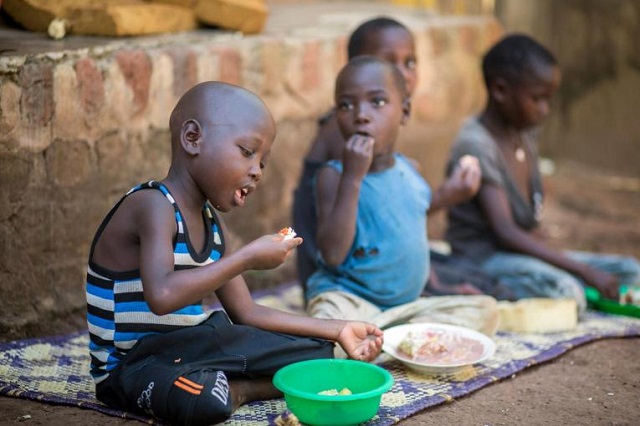
Kampala, Uganda | THE INDEPENDENT | The COVID-19 pandemic may pose great risks to the nutritional status and survival of young children in Uganda.
As Uganda joins the rest of the World to Mark World Food Day, surveys conducted during the COVID-19 lockdown and after suggest that children in some families have not had adequate food nutrients.
The World food day is an annual event marked by more than 150 countries. This year, October 16 comes as the world continues to battle against the covid-19 pandemic which has heaped strain on already fragile food systems, threatening to push millions more into hunger.
Under the theme “Grow, nourish, sustain. Together. Our actions are our future,“ this year’s World Food Day calls for more resilient and robust agri-food systems and for global solidarity.
The Twaweza and Food Rights Alliance survey data under “Livelihoods under COVID-19, Food Supply and consumption” points a particular concern to an expected increase in child malnutrition as result of steep declines in household incomes, changes in the availability and affordability of nutritious foods.
The survey data issued on Thursday indicates that in six out of ten households (61%) with young children (aged 6-12 months), the child(ren) eat the same food as the rest of the household.
It found that in two out of ten households, such children have a different meal and a similar number (17%) are breastfed. In rural households, close to seventy percent young children are more likely to share the same food as everyone else.
Foods Rights Alliance Executive Director, Agnes Kirabo says there is no doubt that the COVID-19 pandemic has affected different households differently and therefore had an effect on nutrition levels.
“When we are looking at food, we are looking at physical hunger and invisible hunger which is called malnutrition, our study is here to predict that in future, when we go out and measure our performance on malnutrition, trust me we are going to perform worse than we have been performing because so many people went hungry” said Kirabo
Kirabo says several studies have found that poor nutrition undermines children’s physical and cognitive development. Children who are not fed a variety of nutritious foods are at risk of poor brain development, limited learning ability, low immunity and increased infections.
The survey found that six out of ten households (60%) say their daily food intake has got worse over the previous month compared to two out of ten (18%) who say their food intake has improved.
Half of households according to the survey report that the stocks of food currently at their home will last no more than a week.
According to Kirabo, the survey findings are not surprising going by the state in which the majority of Ugandans were at the time when the president announced the lockdown in March.
Before the COVID-19 pandemic, UNICEF office in Uganda said three out of 10 children under five years in Uganda were ‘short for their age’ or stunted; 280,000 are ‘too thin’ or wasted. UNICEF’s annual State of the World’s Children report in 2019 found that over 53 percent of children below five years of age are were anaemic.
UNICEF country representative, Dr. Doreen Mulenga then urged for greater attention to child nutrition given that half of the country’s population was under the age of 18.
“Unfortunately, parents don’t always know when their children are suffering from poor nutrition. Just two out of every 10 babies aged 6-23 months in Uganda are fed a ‘balanced diet’. Children’s diets in Uganda are predominantly starch-based and lack the critical nutrients that children’s brains and bodies need to grow.” said Mulenga
Moreover, the UNICEF report notes that we’re seeing at global levels an increase in overweight and obesity among children and adolescents. These children are also not eating the right foods.
In July 2020, UNICEF, with the Food and Agricultural Organization, the World Food Programme and the World Health Organization issued a call to action in The Lancet, warning of the pandemic’s potential to worsen the pre-existing crisis of malnutrition and tip an additional 6.7 million children over the edge to become wasted during its first year.
******
URN
 The Independent Uganda: You get the Truth we Pay the Price
The Independent Uganda: You get the Truth we Pay the Price


